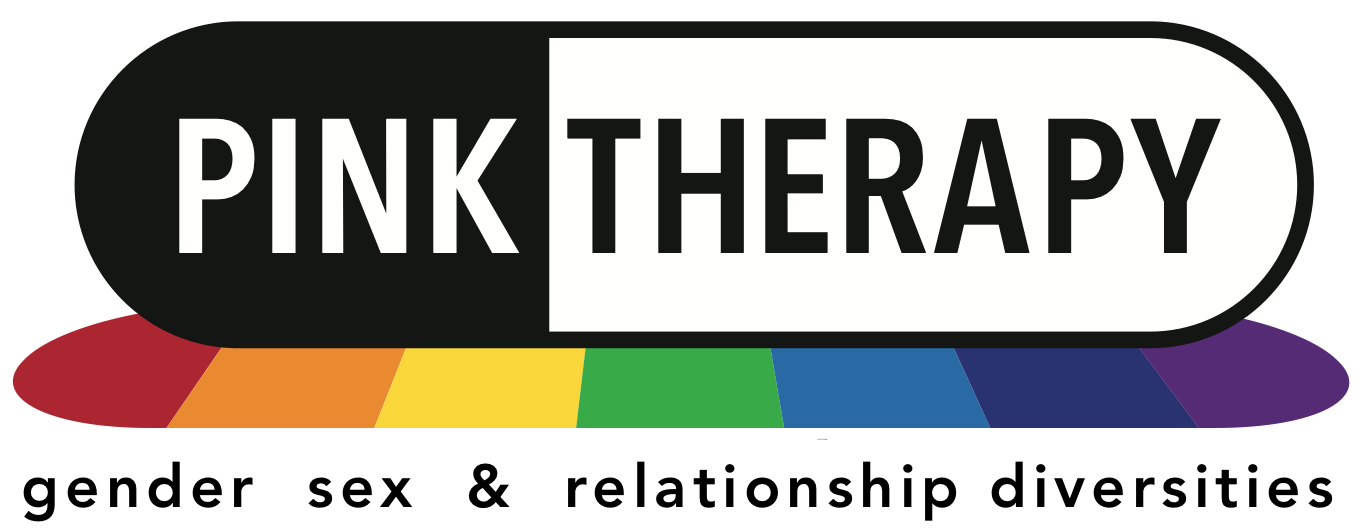PINK THERAPY COURSE ENDORSEMENT
Demonstrate your commitment to gender, sex and relationship diversity (GSRD) within your therapy training courses.
Pink Therapy Course Endorsement offers significant benefits to therapy and counselling training providers, such as:
-
-
- International acknowledgement of best practices by a globally recognised body.
- Courses that successfully achieve Pink Therapy Course Endorsement can publicise and use the endorsed course logo on their course materials and marketing, promoting the quality of your institution offering greater recognition and credibility.
- Assure your GSRD applicants for training that they will be welcomed, where they will receive specific training in helping their communities and where faculty are well-informed about GSRD issues.
- Demonstrate to the LGBTQIA+ community that your therapy/counselling practice is gender, sex and relationship diverse offering reassurance and peace of mind.
- Improve the quality of your training by assessing your course against our recognised quality standards.
- Go above and beyond the obligations made by the psy/therapy bodies in signing the Memorandum of Understanding on
- Conversion Therapy with regard to cultural competence and safety.
-
The course also needs to demonstrate how it is incorporating relevant areas of GSRD psychology and theory as outlined in the BPS Guidelines on working with GSRD clients (revised 2019).
“At CICS we are deeply committed to the inclusivity of all identities. We have developed our courses to exceed the requirements of the Memorandum of Understanding on Conversion Therapy V2, which states:
‘Those with a responsibility for training will work to ensure that training prepares therapists to have sufficient levels of cultural competence such that they can work effectively with gender and sexually diverse clients.’
Although we designed our Diploma in Clinical Sexology with these principles, and we thought we had done a good job of incorporating diversity throughout the course, we also believe that you cannot mark your own homework on course standards, so we applied for Pink Therapy endorsement.
Pink Therapy is THE organisation that knows and understands what cultural competence means relating to gender, sex, and relationship diversity, (GSRD). The time and financial requirements of the Pink Therapy course endorsement process is an investment that repays with dividends. Essentially the course assessment process is valuable consultancy on how and where courses can improve their inclusivity and cultural competence. This results in safer courses for students of GSRD identities and for all students’ future clients. Having a module on gender and sexuality or having queer-identified faculty members is simply not good enough. The Pink Therapy course endorsement process shows you how to do this properly.
We are very proud to be the first course in the UK to be awarded Pink Therapy course endorsement, but we very much want other courses to join us in opening their programmes to scrutiny. From both an ethical and a business position, ensuring that courses are safe spaces for GSRD students and that clients with GSRD identities will be appropriately supported, is a no brainer. We would encourage any course to invest in the Pink Therapy endorsement process. Join us in ensuring that the future generation of student therapists are treated respectfully on their training and are better equipped to work with clients with diverse identities.”
PINK THERAPY ENDORSEMENT STANDARDS
-
- Comprehensive policies and procedures that ensure non-discriminatory treatment of GSRD applicants, students and faculty members at every stage of the programme from application to qualification.
- The active promotion of anti-discriminatory and non-pathologising clinical practice throughout the teaching and clinical component of the course.
- Direct teaching of the Memorandum of Understanding on Conversion Therapy V2 October 2017 including space for students to discuss and reflect on its meaning, intention and application in practice.
- Specific and separate, teaching of GSRD as part of the curriculum, appropriate to the level of the course, taught by qualified GSRD therapists, with clearly stated learning objectives.
- A clearly articulated rationale for the level of GSRD training covered on the course.
- Integrated use of culturally sensitive terms and descriptors throughout all aspects of the programme.
- GSRD integration into case studies, case examples, exercises, course materials, reading lists.
Steps for Endorsement
- Written application and payment of Initial Fee of £100
- Course Visit by Pink Therapy representative to meet Faculty and Students and payment of second instalment of £800 + travel/subsistence expenses incurred
- The endorsement will run for three years. We reserve the right to revisit within this period to ensure continuity of quality.
- We would wish to be advised of changes in faculty and content for the GSRD content on an annual basis.
Pink Therapy Course Endorsement Application
16. Those with a responsibility for training will work to ensure that training prepares therapists to have sufficient levels of cultural competence such that they can work effectively with gender and sexually diverse clients.
17. Training organisations will refer to the latest British Psychological Society guidelines on working with gender and sexually diverse clients when reviewing their curriculum on equality and diversity issues.
